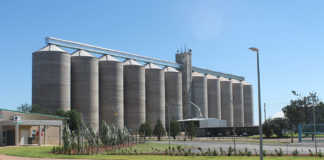Fracturing, or “fracking”, is the method used to exploit the gas, where huge volumes of water are mixed with sand and chemical compounds, such as benzyne, and forced into rock formations to fracture the shale enough to release trapped gas.
The wastewater is then extracted as polluted sludge, which must be treated and disposed of.
There’s no proof yet that fracking causes pollution – the process takes place at very deep levels – but the possibility of accidental pollution caused by cracks in well linings can’t be excluded.
In the US, the process has already led to several complaints from communities, demanding fresh drinking water be delivered.
In the Karoo, where water is a scarce commodity, Bundu will have to bring in water from elsewhere to have enough for fracking.
But locals are concerned that, should the gas dream become a reality where thousands of wells are drilled, parts of the territory could turn into a huge industrial site.
Derek Light, a Graaff-Reinet attorney who represents several landowners and agricultural associations, said the fear is that there hasn’t been enough environmental research into fracking’s possible impact.
“We wouldn’t like to see the traditional land use of the area – livestock farming, game ranching, conservation and ecotourism – destroyed by high-impact operations like mining if the benefits aren’t certain,” he explained.
Light said Bundu failed to give detailed explanations to questions posed by concerned parties at a recent stakeholders’ meeting.
“They’ve given us only two weeks to come up with formal questions and objections – an impossible task considering the area being prospected stretches almost 500 000ha from Graaff-Reinet to Cradock.
“This is a serious business that can’t be hurried,” Light said.
Apparently, previous applications for exploration rights by Bundu were turned down because at the time, the company didn’t disclose what method of mining they would be using.
Gas was found in the Pearston district during the 1960s, but yields weren’t viable.












